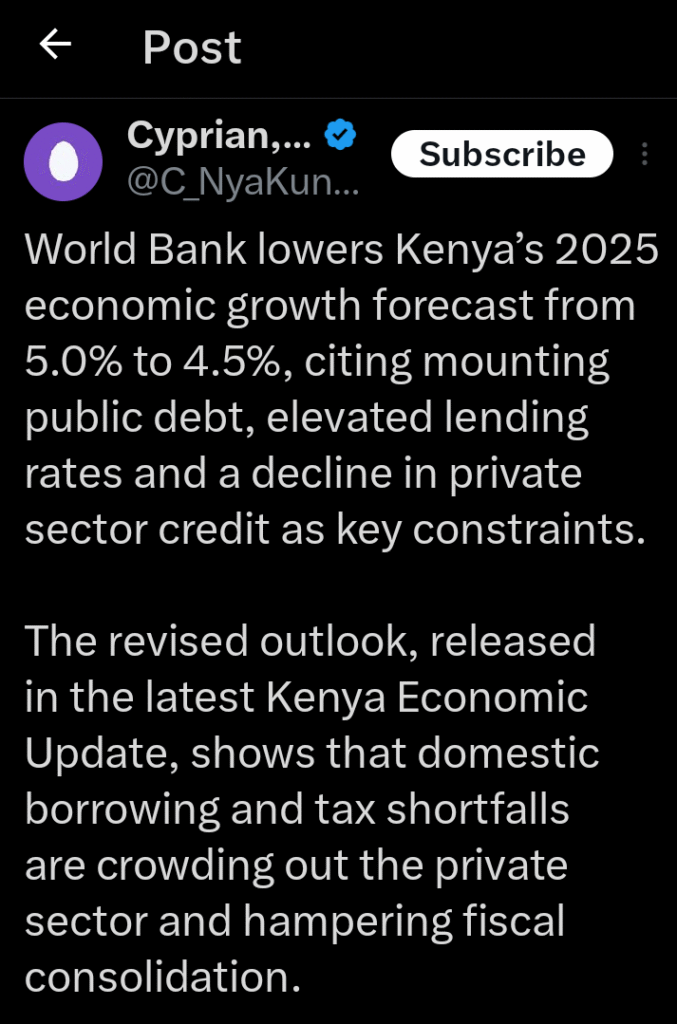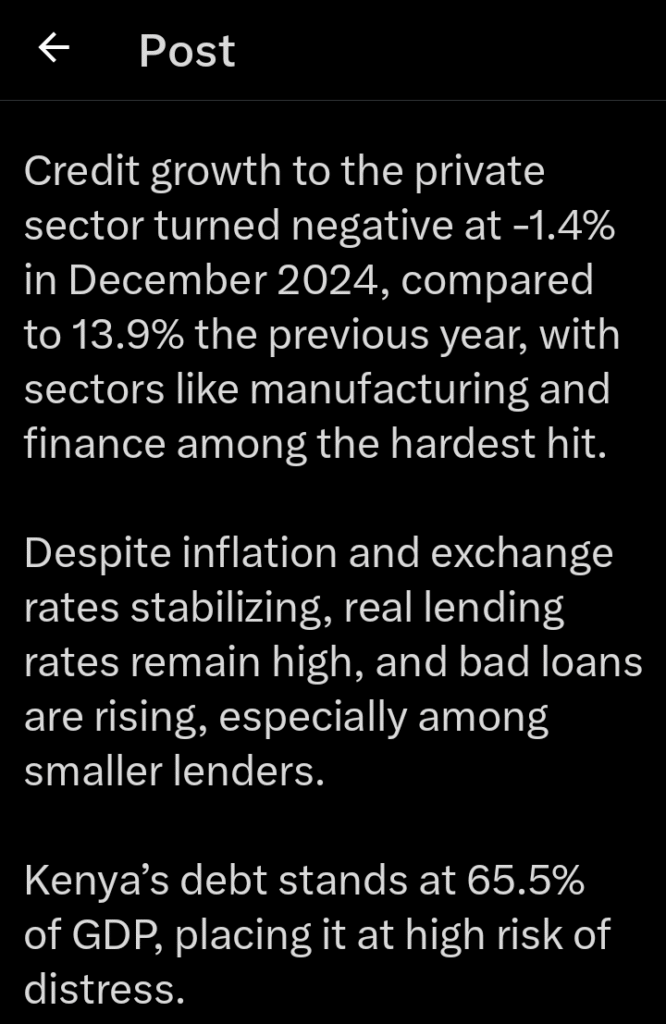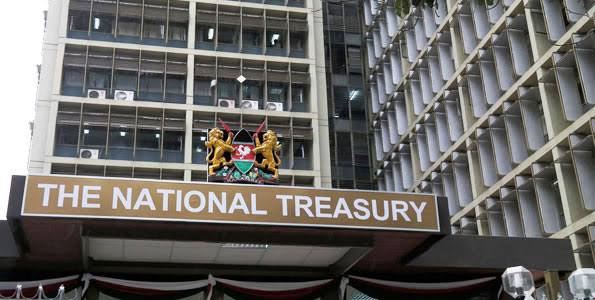Kenya’s economic future is now looking less promising after the World Bank reduced its 2025 growth forecast from 5.0% to 4.5%. This change shows that the country is facing serious challenges that are slowing down its economic progress. The World Bank pointed out that Kenya’s growing public debt, high lending rates, and a drop in credit to the private sector are the main reasons why the growth projection has been cut.
These factors are creating a tough environment for businesses and ordinary citizens who are already struggling with the rising cost of living.In its latest Kenya Economic Update, the World Bank explained that the government’s heavy borrowing and failure to collect enough taxes are squeezing the private sector out of the economy.
Instead of money flowing into private businesses that drive job creation and innovation, more of it is being taken up by government needs. This is affecting growth and delaying the country’s efforts to stabilize its finances. What’s more worrying is that credit growth to the private sector actually went negative in December 2024, standing at -1.4% compared to 13.9% the previous year.

This means businesses are now borrowing less, likely because it has become too expensive or risky to do so. Key sectors like manufacturing and finance, which usually provide many jobs and contribute heavily to the economy, have been hit the hardest by this credit squeeze.
Even though inflation and the exchange rate have shown some signs of stability, real lending rates are still too high.
For ordinary Kenyans and small businesses, this means loans are unaffordable, leading to a rise in bad loans, especially among smaller banks.
Kenya’s public debt now stands at 65.5% of its GDP, placing the country at a high risk of financial distress.
This level of debt means that a large part of the national budget goes to debt repayment instead of development projects that could improve people’s lives.
To help Kenya get back on track, the World Bank has advised the government to reform its tax system. One of the key recommendations is to remove some consumption tax exemptions, which mostly benefit the wealthy.
This would help increase revenue and make the tax system more fair. The World Bank believes that such reforms would allow Kenya to collect more money without placing too much burden on low-income households. With better tax collection and less wasteful exemptions, the government could reduce borrowing and support more inclusive growth.

Without these tough decisions, the country risks falling deeper into economic trouble, making it harder for citizens to afford basic needs and for businesses to survive.





















Add Comment